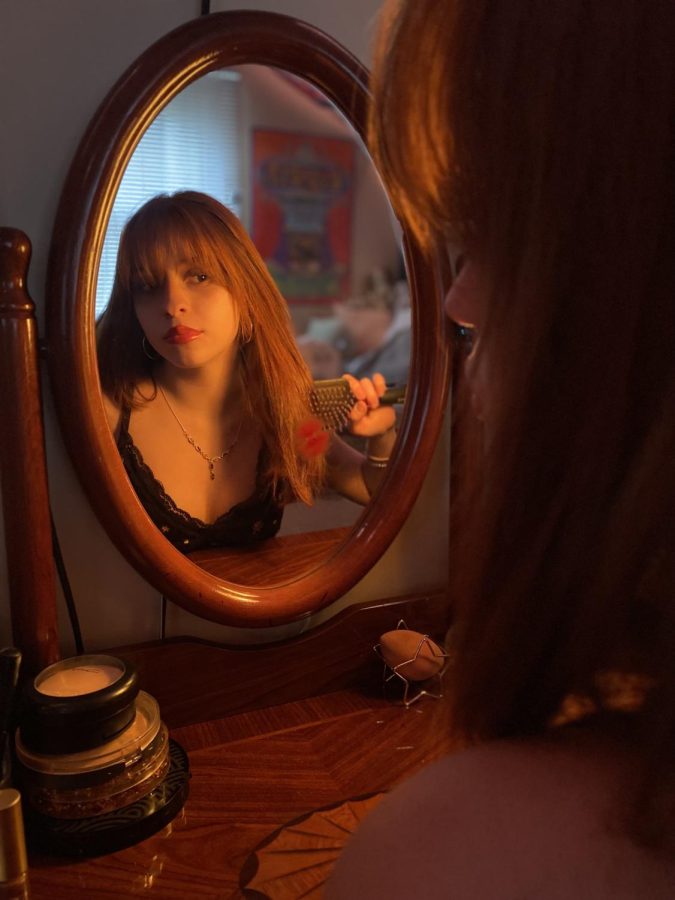The ugly truth about pretty privilege
February 14, 2023
Something not often discussed within the media is how genuine and dangerous “pretty privilege” can be. In movies, TV shows, and books, it is regularly seen that conventionally attractive fictional characters can get away with a lot. The brooding, dark-haired, blue-eyed man is allowed to stalk the innocent blonde girl, but when it is the overweight, scruffy neighbor, it becomes frowned upon.
Shows such as Dahmer and The Watcher romanticize wicked individuals because of the glamorous Hollywood stars being chosen to portray them. These shows are getting popularized by the public, which gives people warped perceptions of what is and is not acceptable in the world.
Using pretty privilege in the media to downplay the negative behaviors of fictional characters and people in the real world is very harmful to our generation.
Casting for movies and TV shows has always been a very crucial part of what makes or breaks these pieces of art. Reality shows such as Too Hot To Handle and Love Island market off of the fact that they found impeccably attractive people looking to find love.
People flock to these TV shows for comfort and entertainment. Because of this dependency, having a cast full of conventionally attractive people creates even more traction for these shows to take off. People are suckers for a pretty face.
This concept is frequently used for more gruesome forms of media as well. Celebrities like Ross Lynch and Evan Peters portray infamous psychotic killers.
In regards to the movie Extremely Wicked, Shockingly Evil and Vile, an English Literature Student at Durham University, Josie Lockwood, talked about the effects it has on the general public after casting Zac Efron to play Bundy.
“Not long after the film was released, a TikTok trend went viral in which young girls would tape themselves as Bundy’s victims, using makeup to create the illusion of blood, bruising, and bite marks on their skin,” Lockwood stated.
The actions of Bundy became a disgustingly glorified symbol for young women instead of showing the horrors of the suffering that these victims and their families went through.
Although the media has amplified this concept, serial killers that are not too hard on the eyes have consistently been treated with much more respect than those who do not have the prettiest of faces.
Sympathizing with criminals is not something new. In an article about the Cameron Herron murder case, Aya Salah talks about the similarities it shares with cases such as that of Bundy once again.
“We’ve seen it happen before, in 1979 with Bundy when several women sent him fan mails while being put on trial,” Salah explained.
Even without the push from the media, people, specifically women, have been glorifying the actions of these killers for decades.
The Netflix documentary 100 Humans: Life’s Questions Answered delves into the science behind why humans tend to feel more sympathy toward those that are supposedly more good-looking. The show conducted a study where two groups of people were put in separate rooms, and each showed an image of a different convict; one being conventionally attractive and the other not. They explained the exact same crime for each of the faces and collected data on if the people would give the more attractive individuals a lighter sentence than those who were less attractive. They did.
These people had no idea they were judging people more harshly solely based on how they looked, but it was natural for them to do so without hesitation.
While rooting for the gorgeous villain to have redemption and fall in love may seem like it’s all sunshine and rainbows, take a second to dig deeper and see if his intentions are truly as charming as they seem. Behind those bright blue eyes, there may be terrible schemes that everyone is blindsided by.


